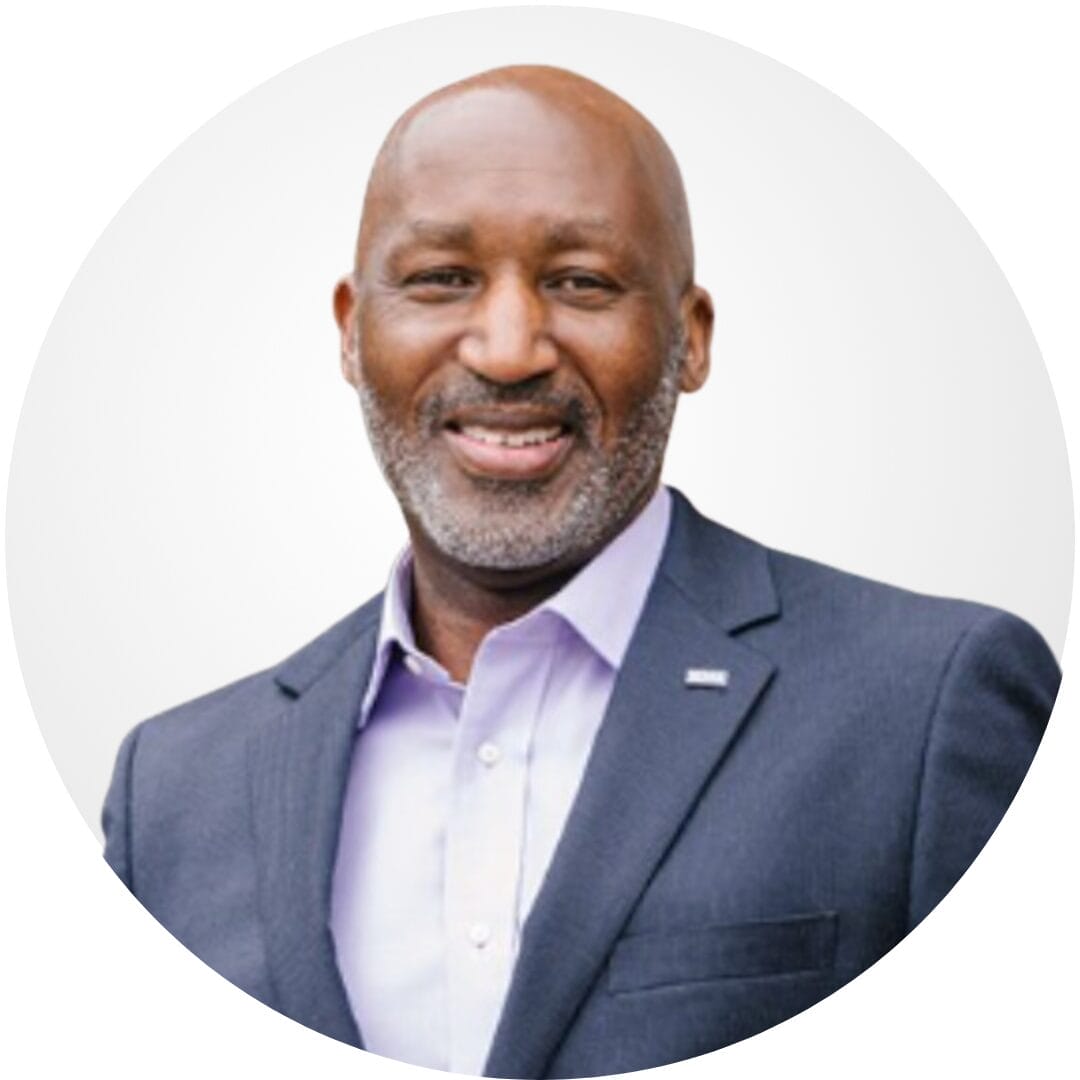Medtech devices rapidly transform healthcare, offering more personalized and efficient care options. From wearable health monitors to advanced surgical tools, these technologies are bridging gaps in patient care. The future of healthcare lies in how well these devices integrate into existing systems to streamline operations and improve patient outcomes.
Seamless integration of MedTech devices is crucial for enabling healthcare providers to work more effectively. It allows for real-time data sharing, reduces human error, and enhances coordination among medical teams, ensuring a more cohesive and efficient healthcare system.
According to a KPMG analysis, the medical device market is positioned for continuous expansion. Worldwide annual sales are expected to climb by more than 5% per year and reach approximately US$800 billion by 2030.
Integration is important in improving the efficiency of MedTech devices and streamlining workflows across healthcare environments. By integrating medical devices with existing systems, healthcare providers can easily access real-time data, enabling faster decision-making and reducing administrative burdens. It creates a smoother, more efficient process for patients and healthcare teams, minimizing delays and errors.
Integrated medtech devices significantly impact patient outcomes and care coordination. When devices are connected, healthcare providers can monitor patient data in real-time, allowing for quicker interventions and more personalized treatment plans. This seamless flow of information ensures care teams are always aligned, improving patient care and reducing chances of miscommunication.
For instance, MedTech devices benefiting from integration include wearable health monitors, remote patient monitoring systems, and smart diagnostic tools. These devices collect valuable patient data and provide instant feedback and insights when integrated with hospital systems. This real-time connectivity enhances the tracking of patient progress, adjusting treatments promptly, and improving overall healthcare delivery.
Here are a few key points you should know while integrating with Medtech Devices:
One of the biggest challenges in MedTech device integration is data interoperability. Different devices and systems often use varied formats and communication protocols, making it difficult to exchange data smoothly. Without standardized communication, integrating new devices can lead to data silos or misinterpretations of vital patient information. Addressing this issue requires a focus on developing universal standards and protocols.
Collaboration between tech companies and healthcare providers is essential to ensure that medtech devices can share data accurately, streamlining the integration and improving care coordination.
Related Read: The Interoperability Challenge in Healthcare
Medtech devices often handle sensitive patient data, which makes security and privacy critical concerns. Healthcare organizations must ensure that medical device integration complies with strict privacy regulations, such as HIPAA, to protect patient information. The risk of data breaches increases when devices are interconnected. Implementing encryption, access control, and continuous monitoring is necessary to protect data. Collaboration between technology providers and healthcare organizations is essential to designing security systems prioritizing patient data protection while enabling efficient device integration.
Related Read: How HealthConnect CoPilot Ensures Patient Data Security and Privacy
Integrating medtech devices into existing healthcare systems often requires significant infrastructure, software, and training investments. High implementation costs can deter healthcare organizations from adopting new technologies, particularly for smaller facilities with limited budgets. Addressing these financial challenges requires strategic planning, including phased integration approaches and evaluating the long-term benefits of medical device integration. By working closely with tech companies, healthcare providers can ensure the solutions they adopt provide value without overwhelming their budgets.
Integrating multiple medtech devices can be overwhelming for healthcare IT teams, especially when dealing with devices from various manufacturers. Ensuring compatibility, regular maintenance, and software updates can be time-consuming and costly. Companies must collaborate with healthcare organizations to simplify integration processes, offering easy to implement and maintain solutions. This partnership ensures that healthcare teams can focus on patient care without being bogged down by technical challenges and device management.
Healthcare organizations often resist adopting new technologies, especially from staff accustomed to existing workflows. Integrating medtech devices can require changes in daily routines, leading to disruptions and increased workload. Addressing this challenge involves efficient staff training and ensuring that new systems are user-friendly. Collaboration between healthcare providers and tech companies is key to developing integration strategies that minimize disruption and help staff adapt more easily to the new technology.
AI and data help MedTech devices integrate, improving real-time monitoring, decision-making, and personalized care. Let’s get to know more about it in the details below:
With AI algorithms analyzing real-time information from integrated devices, healthcare providers gain actionable insights, helping them make informed decisions more quickly. For example, AI can detect anomalies in patient vitals from remote monitoring devices, allowing doctors to intervene before conditions worsen. This real-time support enhances clinical accuracy and ensures patients receive the right treatment at the right time.
Data sharing and interoperability are key to successful medtech device integration. When medical devices can communicate with one another and EHR systems, it ensures that healthcare providers have a complete picture of a patient’s health. Interoperability helps eliminate data silos, making information from different sources available instantly. For instance, wearable devices and in-hospital equipment must work together to provide detailed insights. This allows doctors to track patient progress, compare metrics, and adjust treatments accordingly, improving patient care and coordination.
Related Read: Revolutionizing Electronic Health Records: The Future of AI in Healthcare
AI’s ability to analyze data from MedTech devices supports real-time decisions and provides predictive insights. With AI-driven predictive analytics, healthcare providers can foresee potential health issues before they arise. For example, AI can analyze patterns in patient vitals collected from integrated devices, predicting risks like heart attacks or chronic disease complications. This proactive approach allows clinicians to take preventive measures, improving patient outcomes and reducing hospital readmissions. By integrating AI with MedTech devices, healthcare becomes more focused on prevention and long-term wellness.
AI integration with MedTech devices is already impacting real-world healthcare settings. In areas like remote patient monitoring, AI analyzes data from wearable devices, offering real-time updates on patient conditions. In critical care units, AI helps manage complex devices like ventilators, adjusting settings based on patient data to optimize treatment. These real-world applications show how AI can simplify device management while improving patient care. When medtech devices are integrated into healthcare systems, they provide immediate clinical support and long-term patient management.
AI enhances the efficiency of MedTech device integration by automating routine tasks and processing complex data sets. For example, AI can automate the collection and interpretation of data from various devices, reducing the manual workload for healthcare staff. This automation allows medical professionals to focus on patient care rather than administrative tasks. Furthermore, AI can prioritize critical alerts from integrated devices, ensuring doctors respond quickly to urgent cases. This improved efficiency leads to better patient outcomes and streamlined healthcare operations.
Related Read: Leveraging AI in Healthcare Software Testing
The future of healthcare lies in fully integrated MedTech devices, driving better patient outcomes through real-time data sharing and coordination.
Fully integrated medtech devices are set to transform healthcare by making real-time patient data readily available to care providers. These devices will enable continuous monitoring and data collection, allowing for proactive interventions and reducing the need for in-person consultations. As MedTech devices become more interconnected with EHR systems, healthcare teams will have access to complete, up-to-date patient information at all times. This integration will result in more coordinated care, minimizing errors, and improving overall patient outcomes.
MedTech device integration will fundamentally change patient care by enabling personalized treatment plans based on real-time data. Devices such as wearables, remote monitoring systems, and diagnostic tools will work together to provide healthcare providers with a comprehensive view of a patient’s health. This will allow for faster diagnosis and treatment, improving patient outcomes and reducing hospital readmissions. In the future, MedTech device integration will also enable virtual consultations, allowing healthcare professionals to monitor and manage patient care remotely.
Related Read: Patient Monitoring: A Guide for Healthcare Providers
As healthcare continues to embrace digital transformation, adopting integration-focused strategies for MedTech devices is crucial for staying competitive and improving patient care. Investing in MedTech device integration with EHR systems today will set healthcare providers up for success in the future. By adopting these technologies now, organizations can streamline workflows, reduce inefficiencies, and improve patient outcomes. In addition, preparing for MedTech device integration will allow healthcare providers to meet future regulatory standards and ensure long-term success in an increasingly digital landscape.
Integrating medtech devices into healthcare systems helps providers access comprehensive patient data in one place. This integration allows for better communication between medical teams, faster decision-making, and more accurate treatment plans. Devices like glucose monitors, blood pressure cuffs, and wearable ECGs can sync directly with EHRs, ensuring that vital information is available to all relevant healthcare providers. This seamless data flow improves patient outcomes by enabling quicker responses to health issues and providing a complete picture of the patient’s condition.

Mindbowser offers comprehensive support in medtech device integration, helping healthcare organizations streamline processes and improve patient outcomes. We specialize in integrating various medtech systems, including Telehealth, Laboratory Information Systems, Clinical Trial Management Systems, and Medical Billing, with existing EHR infrastructures.
Our custom solutions ensure a smooth transition, designed to meet the unique needs of each healthcare organization. By partnering with Mindbowser, healthcare providers can improve data accuracy, simplify workflows, and stay ahead of technological advancements, preparing confidently for the future of healthcare.
Integrating medtech devices streamlines data sharing, allowing healthcare providers to access real-time patient information, improving decision-making and reducing administrative burdens.
Examples include wearable health monitors, remote patient monitoring systems, and diagnostic tools that share data directly with healthcare systems for better care coordination.
Medtech device integration improves patient outcomes by enabling personalized treatment plans and quicker interventions through real-time data access and coordination among care teams.
Healthcare organizations can adopt integration-focused strategies by ensuring their systems are compatible with new technologies and working with experts to facilitate a smooth transition.

We worked with Mindbowser on a design sprint, and their team did an awesome job. They really helped us shape the look and feel of our web app and gave us a clean, thoughtful design that our build team could...


The team at Mindbowser was highly professional, patient, and collaborative throughout our engagement. They struck the right balance between offering guidance and taking direction, which made the development process smooth. Although our project wasn’t related to healthcare, we clearly benefited...

Founder, Texas Ranch Security

Mindbowser played a crucial role in helping us bring everything together into a unified, cohesive product. Their commitment to industry-standard coding practices made an enormous difference, allowing developers to seamlessly transition in and out of the project without any confusion....

CEO, MarketsAI

I'm thrilled to be partnering with Mindbowser on our journey with TravelRite. The collaboration has been exceptional, and I’m truly grateful for the dedication and expertise the team has brought to the development process. Their commitment to our mission is...

Founder & CEO, TravelRite

The Mindbowser team's professionalism consistently impressed me. Their commitment to quality shone through in every aspect of the project. They truly went the extra mile, ensuring they understood our needs perfectly and were always willing to invest the time to...

CTO, New Day Therapeutics

I collaborated with Mindbowser for several years on a complex SaaS platform project. They took over a partially completed project and successfully transformed it into a fully functional and robust platform. Throughout the entire process, the quality of their work...

President, E.B. Carlson

Mindbowser and team are professional, talented and very responsive. They got us through a challenging situation with our IOT product successfully. They will be our go to dev team going forward.

Founder, Cascada

Amazing team to work with. Very responsive and very skilled in both front and backend engineering. Looking forward to our next project together.

Co-Founder, Emerge

The team is great to work with. Very professional, on task, and efficient.

Founder, PeriopMD

I can not express enough how pleased we are with the whole team. From the first call and meeting, they took our vision and ran with it. Communication was easy and everyone was flexible to our schedule. I’m excited to...

Founder, Seeke

We had very close go live timeline and Mindbowser team got us live a month before.

CEO, BuyNow WorldWide

Mindbowser brought in a team of skilled developers who were easy to work with and deeply committed to the project. If you're looking for reliable, high-quality development support, I’d absolutely recommend them.

Founder, Teach Reach

Mindbowser built both iOS and Android apps for Mindworks, that have stood the test of time. 5 years later they still function quite beautifully. Their team always met their objectives and I'm very happy with the end result. Thank you!

Founder, Mindworks

Mindbowser has delivered a much better quality product than our previous tech vendors. Our product is stable and passed Well Architected Framework Review from AWS.

CEO, PurpleAnt

I am happy to share that we got USD 10k in cloud credits courtesy of our friends at Mindbowser. Thank you Pravin and Ayush, this means a lot to us.

CTO, Shortlist

Mindbowser is one of the reasons that our app is successful. These guys have been a great team.

Founder & CEO, MangoMirror

Kudos for all your hard work and diligence on the Telehealth platform project. You made it possible.

CEO, ThriveHealth

Mindbowser helped us build an awesome iOS app to bring balance to people’s lives.

CEO, SMILINGMIND

They were a very responsive team! Extremely easy to communicate and work with!

Founder & CEO, TotTech

We’ve had very little-to-no hiccups at all—it’s been a really pleasurable experience.

Co-Founder, TEAM8s

Mindbowser was very helpful with explaining the development process and started quickly on the project.

Executive Director of Product Development, Innovation Lab

The greatest benefit we got from Mindbowser is the expertise. Their team has developed apps in all different industries with all types of social proofs.

Co-Founder, Vesica

Mindbowser is professional, efficient and thorough.

Consultant, XPRIZE

Very committed, they create beautiful apps and are very benevolent. They have brilliant Ideas.

Founder, S.T.A.R.S of Wellness

Mindbowser was great; they listened to us a lot and helped us hone in on the actual idea of the app. They had put together fantastic wireframes for us.

Co-Founder, Flat Earth

Mindbowser was incredibly responsive and understood exactly what I needed. They matched me with the perfect team member who not only grasped my vision but executed it flawlessly. The entire experience felt collaborative, efficient, and truly aligned with my goals.

Founder, Child Life On Call

The team from Mindbowser stayed on task, asked the right questions, and completed the required tasks in a timely fashion! Strong work team!

CEO, SDOH2Health LLC

Mindbowser was easy to work with and hit the ground running, immediately feeling like part of our team.

CEO, Stealth Startup

Mindbowser was an excellent partner in developing my fitness app. They were patient, attentive, & understood my business needs. The end product exceeded my expectations. Thrilled to share it globally.

Owner, Phalanx

Mindbowser's expertise in tech, process & mobile development made them our choice for our app. The team was dedicated to the process & delivered high-quality features on time. They also gave valuable industry advice. Highly recommend them for app development...

Co-Founder, Fox&Fork
